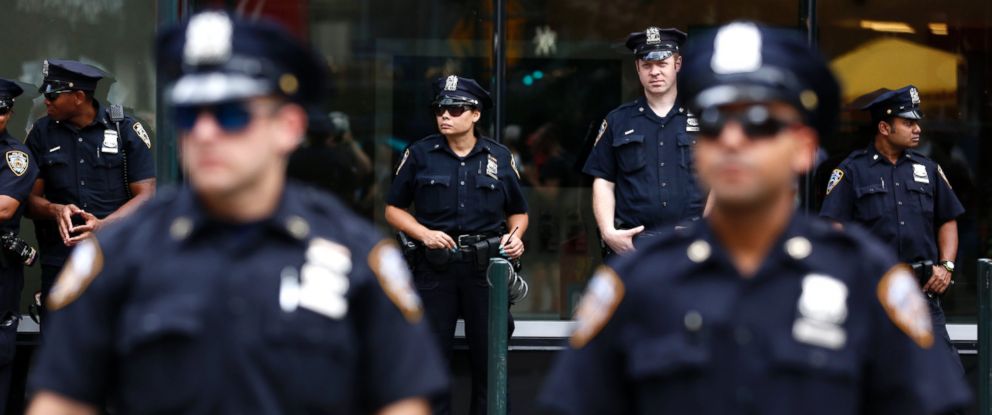What Factors Affect Decisions to Prosecute?
Criminal justice workers in Public Law 280 and non-Public Law 280 jurisdictions were
asked: What factors, cultural or legal, influence decisions to prosecute a case? Many
respondents answer the question negatively, meaning that cultural factors do not influence
decisions to prosecute, but standard evidence and procedures for organizing a criminal case are
used, and are the same throughout the United States.
Most did not interpret the gathering of
evidence as a legal factor, but rather as an objective procedure. Thirty-one Public Law 280
criminal justice workers commented on whether legal or cultural factors influence decisions to
prosecute cases in state and county courts. Three (9.7%) Public Law 280 respondents say they
could not answer the question, and 27 Public Law 280 criminal justice workers (87.1%) say that
there are no significant cultural factors that influence decisions to prosecute a case. One
respondent (3.2%) said that prosecution decisions were influenced by cultural and interest-group
persistence. A large majority of Public Law 280 criminal justice respondents say that cultural
and legal factors are not among the main reasons decisions are made whether to prosecute cases
involving Indians. Most Public Law 280 criminal justice workers say that decisions to prosecute
are the same as elsewhere for cases involving Indians in county or state courts. Some comments
given by the Public Law 280 criminal justice workers are
:
I would say the (main factor is) the heinousness of the offense. I find the more
heinous the offense, the more quickly they prosecute it. The rest of the stuff gets
plea bargained.
(I)t depends on the nature and quality of any physical evidence that might be
obtained.
As general rule, the answer is no. If you were to ask me, have there been specific
incidences where your charging decisions were a little different because of
circumstances and the people involved, the answer would be yes. But the answer
would be yes for non-Native American situations as well.
We make our decisions to prosecute basically on the basis whether a crime has
occurred and whether or not we can prove beyond a reasonable doubt that that
crime occurred. If those two criteria are met, then we prosecute, and it’s the same
for the tribe as it’s for the rest of the country.
Sixteen non-Public Law 280 criminal justice workers answered a similar question and
commented about the factors that influence non-Public Law 280 tribal court prosecution
decisions. Like the Public Law 280 respondents, the non-Public Law 280 criminal justice
266
This document is a research report submitted to the U.S. Department of Justice. This report has not
been published by the Department. Opinions or points of view expressed are those of the author(s)
and do not necessarily reflect the official position or policies of the U.S. Department of Justice.
respondents mix legal and case-evidence information, and respond negatively when saying that
cultural factors do not significantly affect decisions to prosecute in tribal courts. Reading data in
this way yields the following results: Two non-Public Law 280 respondents (12.5%) say they
cannot answer the questions,
while 9 non-Public Law 280 criminal justice workers (56.3%) say
that cultural factors do not significantly affect decisions to prosecute cases in non-Public Law
280 tribal courts. Seven non-Public Law 280 criminal justice workers (43.8%) say that cultural
factors do influence decisions to prosecute in non-Public Law 280 tribal courts. The cultural
factors that respondents say influence decisions to prosecute in non-Public Law 280 tribal courts
include peacemaking, personalities, family ties, and tribal politics.
There are relatively few data for the non-Public Law 280 criminal justice workers, and so
those data should be interpreted cautiously regarding prosecution of court cases. If we can
assume that the trends observed will hold,
comparing differences in the patterns of Public Law
280 and non-Public Law 280 criminal justice respondents on whether they rely on legal or
evidentiary procedures as opposed to cultural factors when deciding to prosecute cases in their
respective courts. As shown in Figure 9.3, according to our sample of criminal justice workers,
Do Legal or Cultural Factors Affect Decisions to Prosecute?
PL280 State-County Courts and Non-PL280 Tribal Courts
According to Criminal Justice Personnel
Legal or Evidence Factors Cultural Factors
0%
30%
60%
90%
Non-PL280 CJ Tribal Courts PL280 CJ, State-County Courts
3.2%
43.8%
87.1%
56.3%
Percentage Affirming
Figure 9.3
there are more cultural influences, or non-legalistic or non-evidentiary influences, in non-Public
Law 280 tribal courts than there are in Public Law 280 county and state courts (Fisher’s Exact
Probability Test, df =1, one-tail p =.04). A very high proportion of Public Law 280 county and
267
This document is a research report submitted to the U.S. Department of Justice.
This report has not
been published by the Department. Opinions or points of view expressed are those of the author(s)
and do not necessarily reflect the official position or policies of the U.S. Department of Justice.
state court criminal justice workers say that legal or evidentiary matters are the primary
influences on decisions to prosecute cases involving Indians in Public Law 280 jurisdictions.
Very few Public Law 280 criminal justice workers observe cultural influences in decisions to
prosecute Indian-related cases. Most non-Public Law 280 criminal justice workers report legal
or procedural methods are used to decide on prosecution of cases in non-Public Law 280 tribal
courts. However, the non-Public Law 280 criminal justice workers also say a significant
proportion of non-Public Law 280 court prosecutions (43.8%) are amenable to the influence of
cultural or other non-legal factors. Criminal justice workers in Public Law 280 and non-Public
Law 280 jurisdictions perceive that cultural and legal factors influence prosecution decisions
significantly differently in non-Public Law 280 tribal courts and Public Law 280 state/county
courts.

